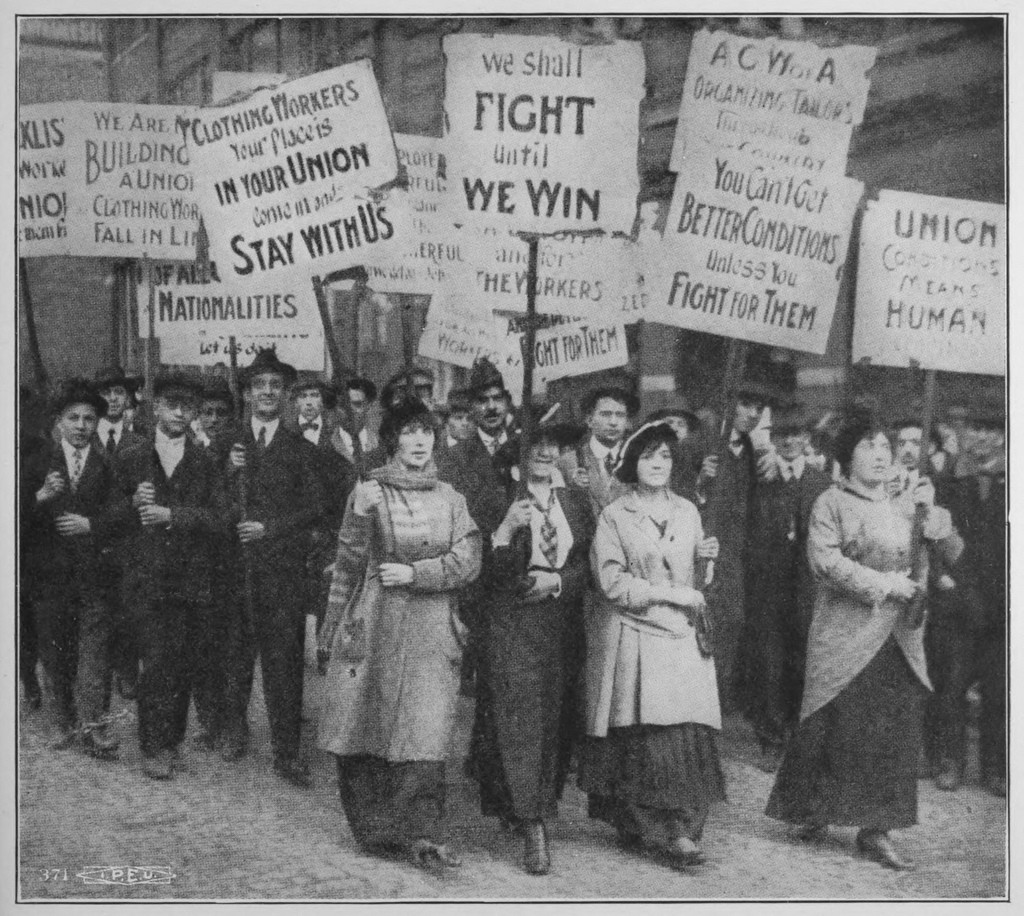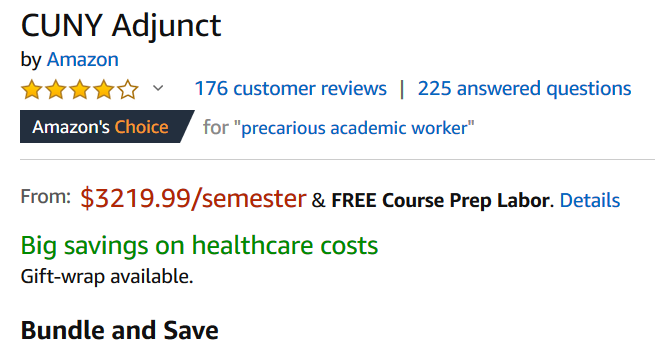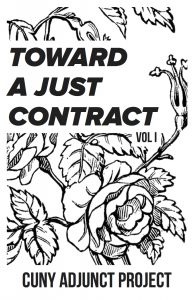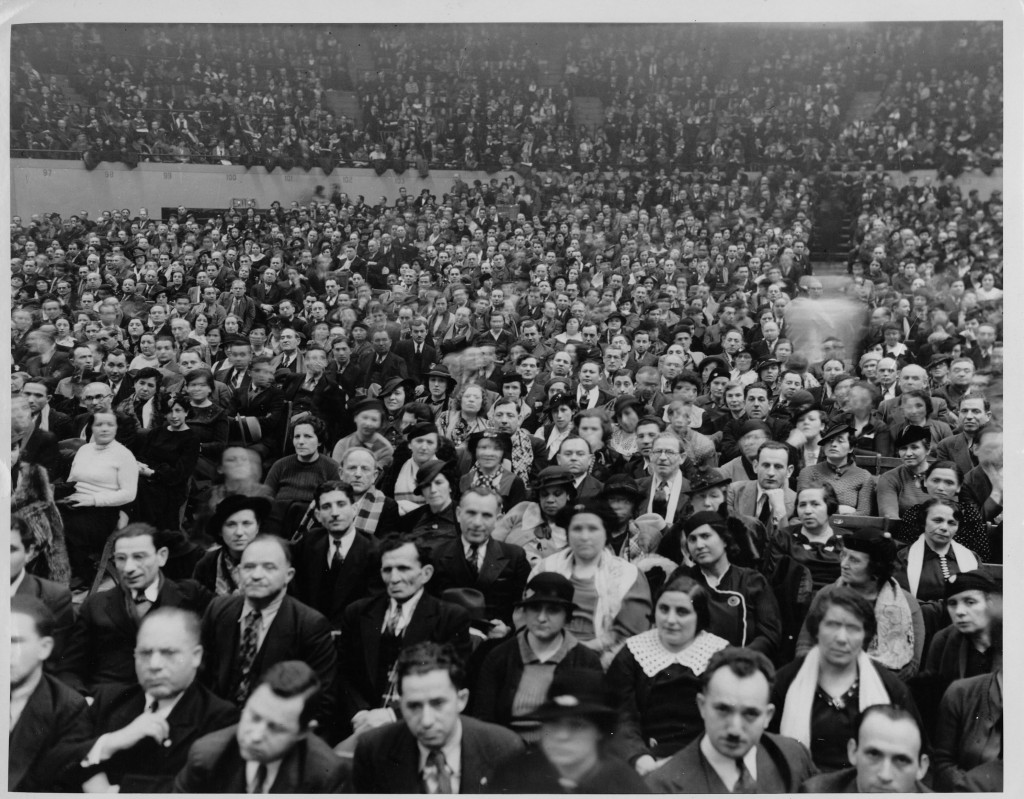
On Thursday, June 16th, the Professional Staff Congress (PSC) announced it had reached a tentative contract with CUNY management, and the following evening it released a summary of the contract’s details. By Wednesday, June 22nd, the “memorandum of agreement” providing the contract’s full details started to circulate, although as of this writing that memorandum hadn’t been officially distributed to the PSC’s membership at large. And on Thursday, June 23rd, the PSC’s Delegate Assembly voted to endorse the tentative contract by 111-11. It will now be sent to the union membership for ratification, in which all of us—higher education officers (HEOs), tenured and full-time faculty, CUNY Language Immersion Program (CLIP) and CUNY Start instructors, graduate employees, and adjuncts, the group of workers the Adjunct Project was created by the Doctoral Students’ Council to serve 22 years ago—will be able to vote for or against it.
As the coordinators of the Adjunct Project, we recognize that many members of the bargaining unit are grateful just to have a tentative contract after six years without one, and we’re ourselves grateful for the work of so many people not just to reach this point but to amplify adjunct and graduate-employee concerns throughout this process. We recognize that there may be aspects of this tentative contract that are agreeable to some or many, and that the contract overall may be perceived, as one common reaction has it, as “better than nothing.” We also understand that, in the midst of austerity, the fight back from the threatened $485-million funding cut by the state—a fabricated crisis—and from management’s initial 6% economic offer are not just immediate victories but important steps in the continuing struggle against austerity as an ongoing political economic project. Indeed, we look forward to participating in this struggle with even greater resolve going forward.
Nevertheless, and mindful of both the Adjunct Project’s and the Doctoral Students’ Council’s endorsements of striking as the only means to achieve a genuinely fair contract, we are advocating a “NO” vote on the tentative contract because it fails adjuncts, who teach approximately two-thirds of CUNY courses, by maintaining our unsustainably low wages and insecure employment status while increasing the disparity between our pay and employment status and that of full-time faculty. Moreover, the tentative contract fails all workers in the bargaining unit by its overall concessions to the state and management. We offer the following specifics:
(1) In providing across-the-board wage increases, the tentative contract further increases the pay disparity between full-time and part-time faculty. In order to decrease this pay gap—and achieve the “movement toward adjunct salary parity” the PSC called for as its third contract demand—adjuncts need to receive “equity pay” in the form of substantial raises over and above across-the-board wage increases. Under the terms of the tentative contract, the across-the-board pay increase of 10.41% (with compounding) will provide an adjunct lecturer at the bottom of the pay scale with $300+ more per course by the end of the contract ($3,222 [rounded], compared to the present $2,918 for a 15-week course). This keeps adjunct pay at an unfathomably low rate in spite of the fact that the Adjunct Project—and the Coalition of Contingent Academic Labor, the Doctoral Students’ Council, and the Modern Language Association—call for a minimum of $7,000 per course, while the PSC’s First Fridays adjunct group endorsed a $5,000 minimum (a minimum the PSC itself has endorsed via its support for the National Mobilization for Equity). By comparison, a full professor at the lowest rung of the pay scale will receive an additional $7,000+ per year by the end of the contract ($68,803 currently, versus $75,975 under the proposed contract).
(2) The signing bonuses reinforce this pay disparity. Full-time faculty and staff will receive a $1000 signing bonus, to be pro-rated for part-timers. However, adjuncts who are paid for just 45 hours of work per three-credit course while actually working many multiples of that amount will receive only a minimal signing bonus—and most of us won’t qualify for the designated adjunct bonus given the high bar set for obtaining it. Meanwhile, graduate employees will only receive $750 or $500 depending on what appointment they have (graduate assistant A, B, or C, or graduate assistant D, respectively).
(3) Instead of equity pay for adjuncts, the PSC conceded to management’s demand for what might be termed “elite pay,” or the up-to-15% raises that “select faculty and staff” will be able to receive under this contract beyond the upper limit of the pay schedule. This concession not only considerably widens the pay disparity at the top end: it also shows that additional money can be found for targeted wage increases.
(4) Although the three-year appointments for adjuncts are being hailed as a breakthrough by some, the details prove otherwise. First, the three-year appointments are only a pilot program, fully contingent upon management’s approval to continue them beyond the initial five-year trial period. Second, management reserves the right to appoint adjuncts to the three-year terms on the basis of the “fiscal and programmatic needs of the department and/or the college” (provision #4 in the relevant section of the memorandum of agreement), which means even under the pilot program, adjuncts will be appointed at management’s discretion, just as we are now. Third, the appointments will not apply to the majority of adjuncts, who won’t meet the requirement of teaching six credits a semester in the same department for 10 continuous semesters. Further, since most of us will not qualify for the appointments, the appointments create yet another tier of employment status within the faculty ranks. Finally, the three-year appointments, which will require a “tenure-lite” review triannually, are a far cry from the “Certificate of Continuous Employment” the PSC listed as its 22nd demand, in which adjuncts, after teaching a minimum of 12 contact hours for one department in five of the previous seven years, would undergo a single review and then could only be terminated for just cause. Instead, a seniority system, for which the First Fridays group and others lobbied, would be the best job protection short of tenure.
(5) The 9/6 rule will remain, which limits adjuncts to teaching nine credits at one campus and six credits at another. Many of us lobbied for either an outright end to this policy—a PSC rule that ostensibly limits our exploitation—or its significant relaxation, so that we could have more control over our teaching schedules (say, by centralizing our teaching at one campus, thus increasing and solidifying our presence there while cutting down or eliminating travel time between campuses). Again, as adjuncts and graduate student workers, we should and must be paid more, but until we achieve parity, we should be able to work more and have more choice about where we work.
(6) The 10.41% across the board wage increase is less than the rate of inflation (12%) since the last wage increase went into effect in 2009, and is considerably less than the cost-of-living increase in the New York City area over that same period (above 20%, according to various estimates).
(7) Ultimately, incrementalism will not end either the two-tier system of faculty labor at CUNY nor the austerity program of New York State and CUNY management. Indeed, austerity can only be defeated by following through on the strike authorization and taking other bold, imaginative, committed, collective action.
Thus we’re left with no option but to vote “NO” on this contract, an obligation we share with fellow adjuncts, graduate student workers, and all those who recognize that our union is only as strong as the most exploited among us. Voting “NO” also makes it clear to our bargaining team and to CUNY management that “better than nothing” isn’t good enough—not after six years without a raise, and not at a moment when we’re more organized and ready to fight than ever. Finally, voting “NO” means not giving up on the strike that we campaigned for and authorized with a 92% majority, and which remains the most powerful tool at our disposal to secure a contract worthy of our labor. We’ve waited too long and fought too hard to accept this contract. By refusing to accept it—by refusing to wait for another endless round of negotiations on the next contract—we also refuse to accept the worsening status quo. We know in our working hearts, minds, and bodies what we need to do, and we look forward to a vigorous discussion about it after we say “NO!”
With love and solidarity,
The Adjunct Project coordinators
[Image: “Striking clothing workers parade” via Digital Collections, UIC Library via CC BY-NC-Nd 2.0.]






